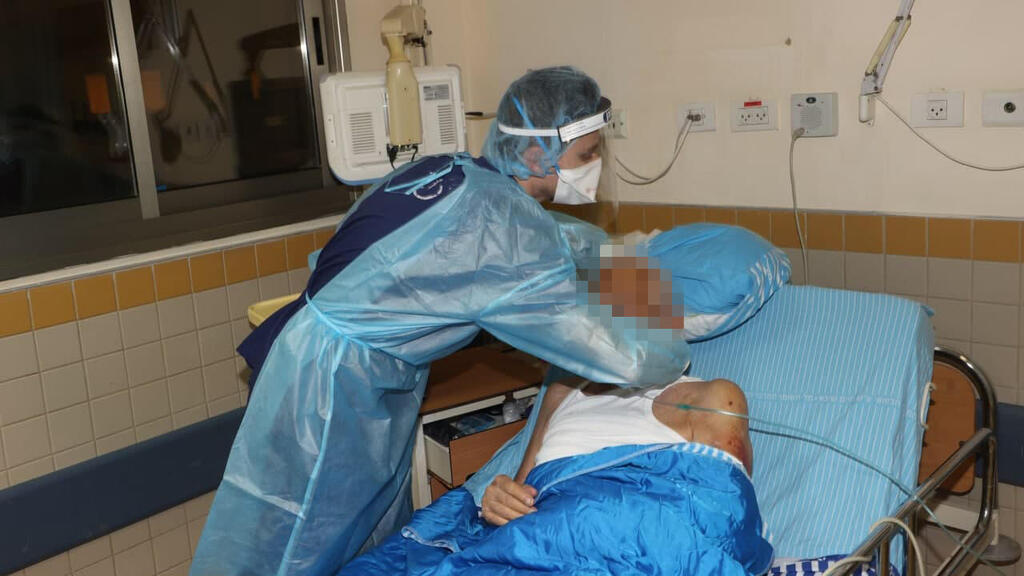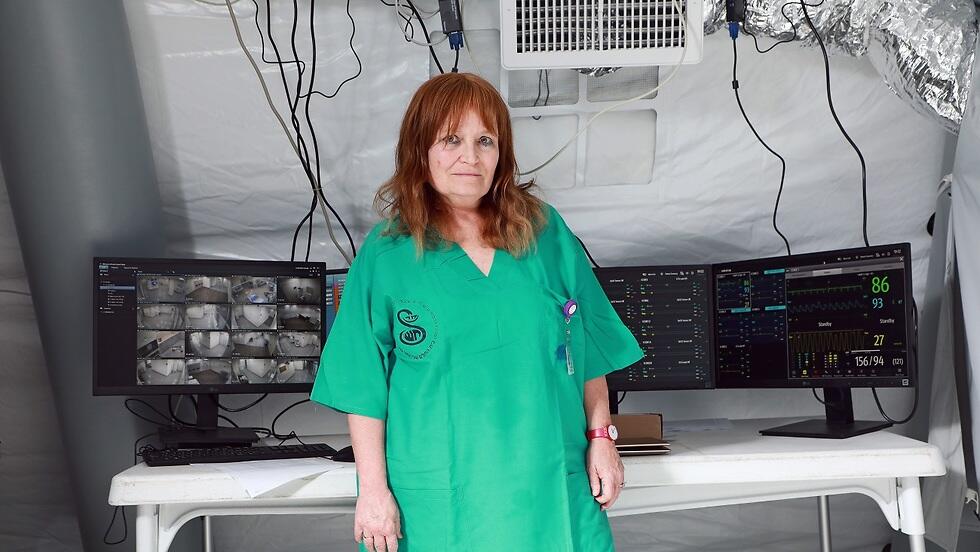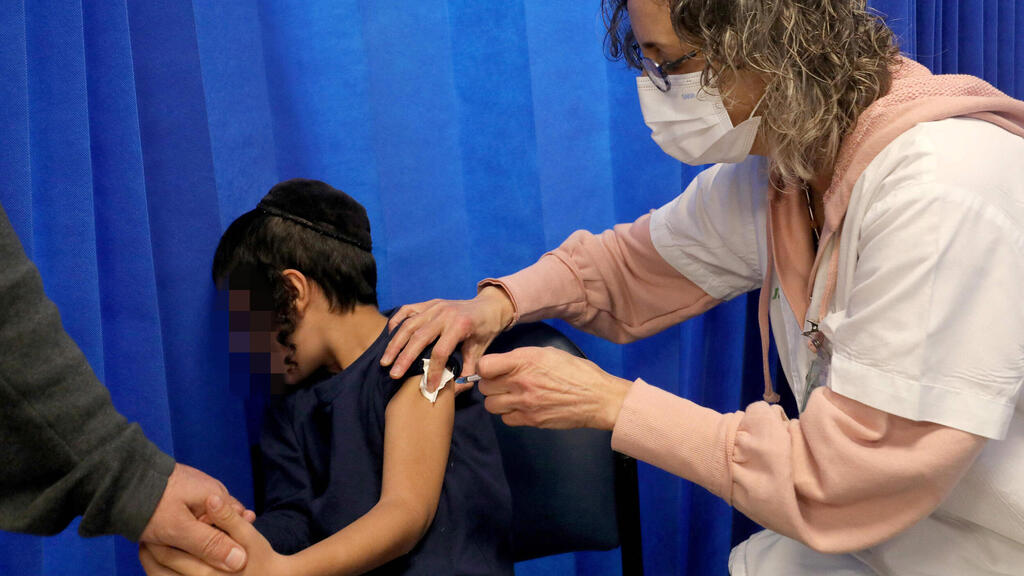A senior health expert said Sunday that Israel will see serious coronavirus cases declining in two weeks' time.
The Health Ministry said earlier that hospitals are currently treating 1,069 coronavirus patients described as seriously or critically ill, 241 of them connected to ventilators.
Prof. Galia Rahav, who heads the infectious diseases department at the Sheba Medical Center, told Ynet that serious symptoms of COVID-19 may appear up to two weeks from exposure to the virus and there was no expectation that the reduction in single-day cases would have an immediate effect on the tally of severely ill.
"I am carefully optimistic," she said. "We must not think that the pandemic is over and must continue the efforts to administer vaccines. We must also be cognizant of developments and bolster the medical system in hospitals and in community care," she said, adding the Omicron variant does not cause the same respiratory complications as earlier strains.
Rahav also praised the government's decision to allow schools to operate under a strict testing policy.
"We cannot continue with lockdowns. I am in favor of the new policy, but we must have the cooperation of parents and they must test their children properly," she said.
When asked to comment about the Health Ministry's decision not to offer a fourth vaccine dose to the adult population at large, Rahav said those who are at risk due to underlying health conditions can and should receive the jab.
"We know from our studies that six months after vaccination, people do not have immunity against the Omicron variant of coronavirus," she said. "It is important to be vaccinated in order to avoid the complications caused by the virus, including PIMS and long-COVID."
Rahav also said the new variant, BA.2, which is already spreading quickly around the world, does not cause too much concern.
"It is perhaps a bit more contagious than Omicron, but does not cause a more severe illness," she said.
Scientists are currently tracking a rise in cases caused by an Omicron offshoot, which is starting to outcompete BA.1 in parts of Europe and Asia.




